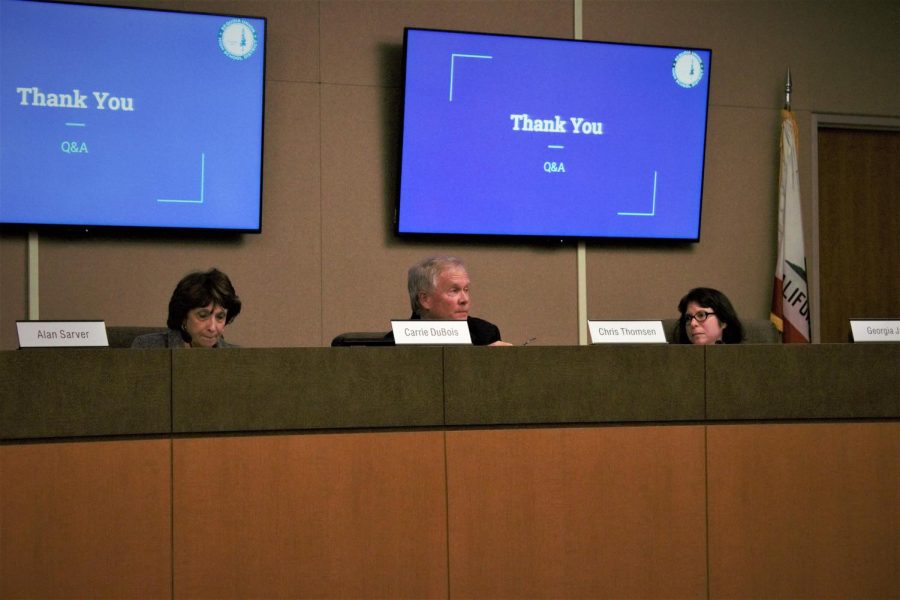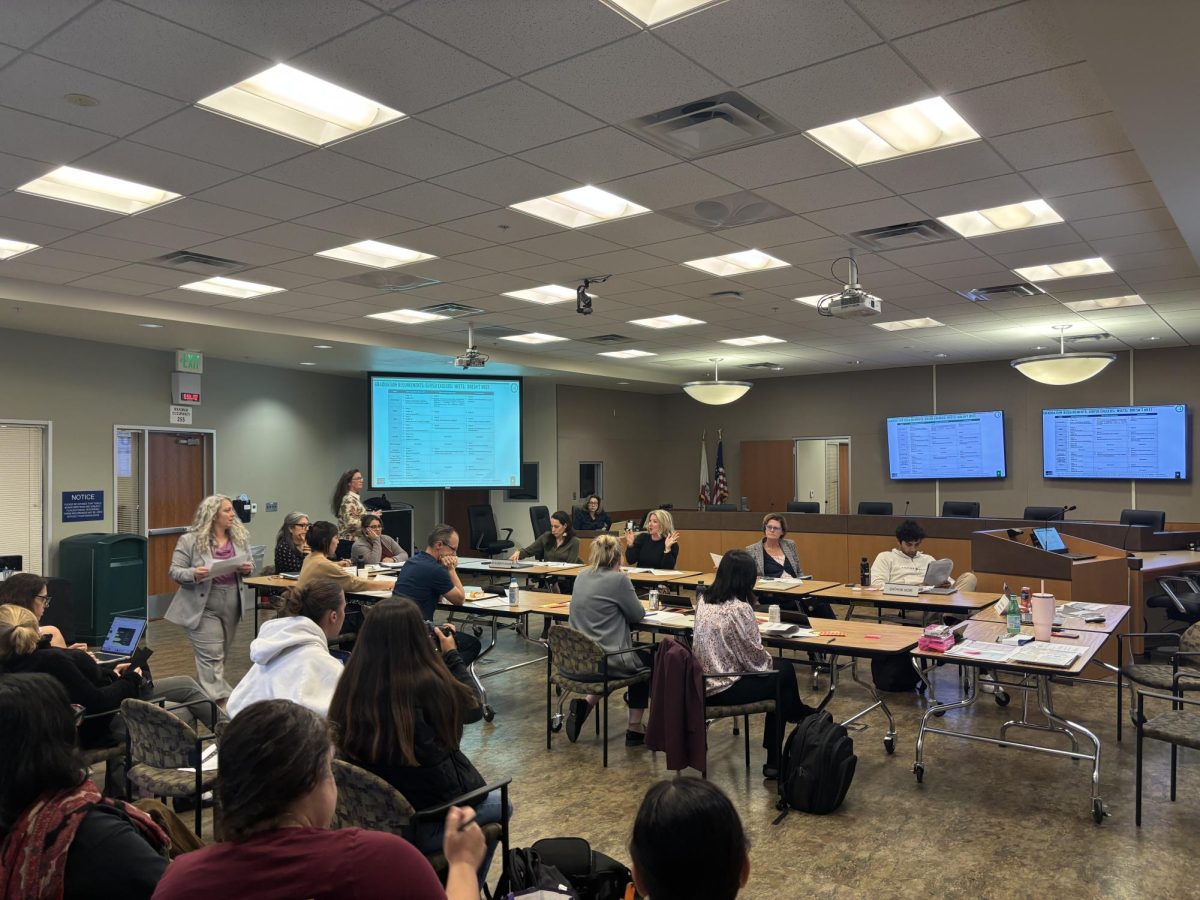All information is factual at the time of publishing; The Paw Print will continue to update the article as the situation develops.
The Sequoia Union High School District Board of Trustees held a meeting on Wednesday, March 11 during which they discussed the coronavirus (COVID-19) pandemic and its effects on the community.
Alongside their previously-scheduled topics, including the budget and board policies, the district board focused on how schools should respond to the continual spread of COVID-19.
The discussion outlined four main hypothetical cases of exposure. The first case is if a student or staff member contacts someone who had been in contact with someone testing positive for COVID-19. The second case is direct contact between a student or staff member and someone with COVID-19. The third case would be a student or staff member testing positive themselves. All three of these cases will be dealt with on a school to school basis.
“The response would be a 14-day self-quarantine for the contact,” Sequoia Union High School District Superintendent Mary Streshly said. “The school official would then implement a potential school closure for the purposes of deep-cleaning.”
According to Streshly, this process has already occurred at South San Francisco High School, Menlo College, and other schools in the San Mateo Foster City and San Francisco Unified School Districts. {Update: all schools in the San Francisco Unified School District have been closed until early April.} Each school dealt with their case individually, although they adhered to the standard protocol.
The fourth and worst case would involve an order from county health officials demanding that the schools be shut down. If that were to happen, Sequoia Union High School District would act jointly with all the other districts in the county and comply with the orders of health officials. For now, however, the county’s regulations only prohibit certain activities.
“The two main guidelines are large gatherings and long distance travel,” Streshly stated. “We looked at these parameters and started creating recommendations of what events would need to be considered for not just cancellation but hopefully rescheduling or modification.”
The board expressed their condolences to students about the cancellation of largely student-run events like the musical, sporting events, and field trips.
“I think the most important thing for me to say right now is that it is heartbreaking to take away the activities that kids have been looking forward to,” Streshly expressed. “It’s not a decision or recommendation that any of us take lightly.”
Still, the board felt that it was necessary to cancel these events as a precaution as well as a way to help keep schools open for longer.
“It’s the bigger perspective,” Streshly explained. “We can talk about one particular field trip, but what we’re really facing is the high, high likelihood that we’re going to close [schools] in a period of time, for a period of time, which puts everything off the table.”
Streshly reassured listeners that the state is doing everything they can to help the schools stay open. Assistant Superintendent of Educational Services Bonnie Hansen added that schools may currently be some students’ best option.
“[Some] families are socioeconomically disadvantaged, and the parents have to work,” said Hansen. “School is the cleanest, safest place where those kids can be during the day.”
The board took note of the balance between protecting public health and providing access to school benefits such as good nutrition, support services, and adult oversight.
“The public health externality would say, ‘shut down right away,’” said Allen Weiner, the president of the Board of Trustees. “The social benefit that schools provide would say… stay open. Try to hang in there.”
However, the board commented that a situation like this is highly unprecedented and may change rapidly.
“I can’t emphasize how fluid and how quickly-changing not only the situation is with the pandemic but with the guidance that we’re getting at the school district,” said Streshly.
Although the district will try to keep schools open while they can, they are also beginning to prepare for closure.
“Information coming from the county about health is the way you stop the spread is you shut everything down, and we don’t want to be part of continuing the spread,” Hansen stated.
Most teachers will be trained in online learning next week. In addition, under the Every Student Succeeds Act, schools must ensure all students receive access to computers and the Internet.
“If we end up needing to go to at-home learning, we will provide one-to-one devices and hotspots to as many students who do not have those at home as possible,” said Hansen. “But, we will still assume that there are still students out there who will not have access to a consistent online learning device. To that end, we will have places in the community… where students can easily come in [to work].”
Teachers would be available to help students during their regular hours via phone call and email rather than in person. Teachers are also advised to be more lenient in assignment deadlines and grading.
“We’re going to encourage teachers to use their freedom to be as flexible as they can be with students and when assignments come in,” explained Hansen. “We won’t really know what students’ home situations are.”
Aside from access to curriculum, the district is also working on access to services such as free and reduced lunch and transportation. Still, none of their plans are definite.
“The old adage from military history is that no plan survives first contact with the enemy,” Weiner reflected. “I think the key is to plan but anticipate that the plan will have to evolve and be adaptable.”
Additional reporting by Alexander Balfanz and Cedrik von Briel. Special thanks to Principal Diane Burbank and David Beaver.











